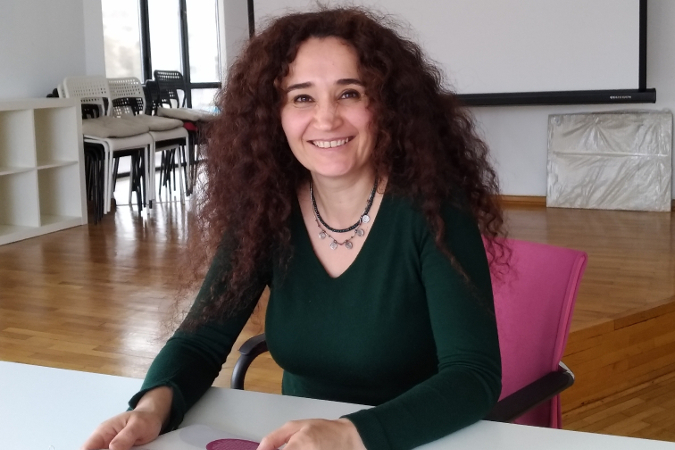In the words of Ülker Şener: “Assisting refugee women to enjoy their basic human rights is of utmost importance”
Date:
Ülker Şener is the Head of the Steering Committee for the Women’s Studies Association, a feminist group established in Ankara, Turkey in 2011. The association specializes in conducting research and raising awareness of gender equality, women’s empowerment and violence against women. As part of the UN Women regional programme “Implementing Norms, Changing Minds”, the Women's Studies Association will work to raise awareness of violence against women among refugees in two Turkish provinces: Mersin and Hatay. Their project is expected to foster collaboration between women refugees and local refugee and women’s organizations, as well as raise awareness and increase sensitivity towards women refugees among the local media.

“I started working with women in 2003 at the Mamak/Tuzluçayır community center in Ankara. There, I had the chance to interact with and support people from a lower socio-economic background, especially women. During six years at the community center, I worked to promote women’s economic and social empowerment, as well as helping newcomers integrate into the community. This experience helped me understand better how important it is for women to be economically empowered.
The creation of the Women's Studies Association was also inspired by these experiences. We started this group to help improve the rights and conditions of women. Here, we work to bring together qualified women working in professional jobs and women from disadvantaged groups. The idea is to create a network of solidarity by learning from each other.
We know that existing social norms can be used to justify violence against women. This may happen either because of the way these norms are defined or the way they are interpreted and abused by certain groups. When people from different walks of life, at different ages, with different knowledge and experiences get together, they discover how social norms can differ across time and place. At the same time, people from different backgrounds may find that they have many problems in common by sharing experiences. We do not want women to suffer in isolation. They should know that they are not alone either in their suffering or in their struggle for change.
We want to raise awareness about and increase sensitivity towards female refugees in the local media. In order to accomplish this, we need to collaborate with local actors and help them work together. One of our main tasks is to bring these groups together and foster a common purpose and understanding and continuous collaboration.
At the same time, we have been actively engaged in advocacy. We follow mainstream and social media and participate in the debates.
I think assisting refugee women to exercise and enjoy their basic human and civil rights is of utmost importance. I believe that raising awareness among both the Turkish and Syrian population should be prioritized – integration requires both sides to be actively engaged in order to foster a shared sense of common humanity and rights.”